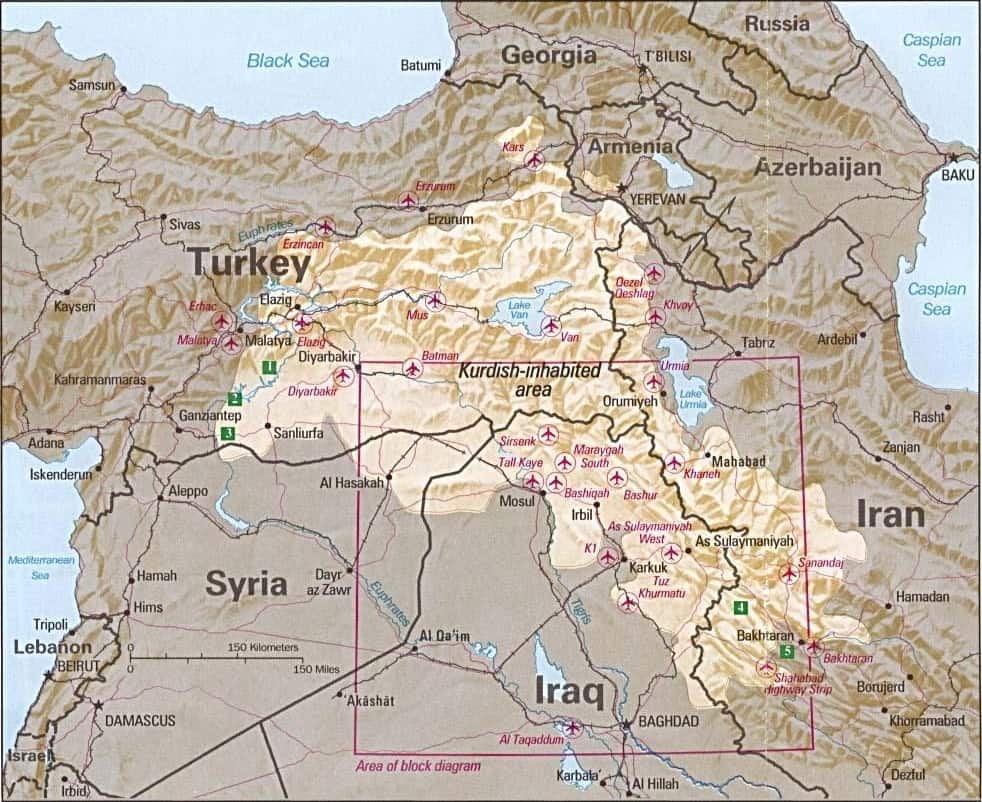by Richard Schulman

Strong differences among policy professionals regarding President Trump’s precipitous withdrawal of US protection of its Kurdish allies underlines the fact that the administration has no well-thought-out Mideast policy. Indeed, confusion and recriminations are now widespread within the administration itself, the US military, congressional Republicans, and the general public.
The White House is now in damage limitation mode, as indeed it should be, but the more important task is to define a coherent policy going forward and to do that fairly quickly. We have written before — two years ago — as to what the primary US interest in the Mideast is: namely, what the international relations scholars call offshore power-balancing so that no single power or closely allied combination of powers dominates the region and monopolizes its oil and natural gas. Were this to happen, that power or coalition of hostile powers could effectively dictate terms to US allies in Europe and Asia.
It’s true that the administration has had several original initiatives in the Mideast:
- Moving the US embassy to Jerusalem, as long promised by previous administrations but never carried out;
- Nullifying the JCPOA, the Obama administration’s giveaway treaty with Iran, never submitted to the Senate as required by the Constitution, and attempting to force Iran to re-negotiate by enforcing an extremely harsh economic boycott on it;
- Destroying the ISIS caliphate, with the help of Kurdish allies; and
- Fulfilling a campaign promise of exiting US armed forces from the Mideast.
While these initiatives were seemingly admirable considered in isolation, they did not constitute a coherent Mideast policy, much less a policy taking into account US national interests worldwide. In fact, they weren’t even consistent with each other. Preventing Iranian domination of the Middle East requires boots on the ground to thwart the arc of Iranian power running to Lebanon through Syria. The Israeli air force can help in that, but the Kurds, whom the US president abandoned first in Iraq and now in Syria, were the essential boots on the ground. Who’s going to do the job now? It can’t be US troops, because the president is committed to extricating US combat forces altogether from the Mideast. And yet, his economic boycott is strangling Iran, an act of war, but the president seems ignorant of what happened prior to December 6, 1941 when the US strangled Japan economically, and he is shunning military action in reprisal for Iran’s acts of war against the US in Iraq, the Persian Gulf, and against Saudi Arabia. This is not a sensible policy if the US wants to exit the Mideast militarily.
In any case, the objective of US policy in Iran should be to encourage regime change within Iran itself. But Trump says he’s not for regime change, just behavioral change in the present mullah regime. That’s highly unlikely to happen. Apparently “regime change” got a bad name under George W. Bush, who successfully led the overthrow of Saddam Hussein but then alienated the Iraqis by appointing a proconsul to rule over them rather than letting them run their own show from the outset and settle their own scores.
Admittedly the Trump administration isn’t the first to screw up in the Mideast. That’s been going on since the early 1950s when Eisenhower and Secretary of State John Foster Dulles foolishly sided with Nasser vs. our British and French allies and the Israelis. Nasser soon allied with the Soviet Union and inspired radical anti-US regimes in Iraq and elsewhere, destroying the US leadership in the region that had previously prevailed. Eisenhower at least learned from his mistake. Carter let the Shah be replaced by the mullahs, Reagan and Clinton blinked at anti-US terrorism, Bush Senior sent mixed signals to Saddam Hussein regarding Kuwait, had to wage a war to force Saddam out of Kuwait, encouraged a Shiite and Kurdish revolution against Saddam, then looked the other way as Saddam’s gunships gunned down the insurrectionists. And so on with Bush Jr. and Obama.
As for the president’s precipitous abandonment of the Kurds for the sake of Turkey’s Erdogan, whom the president has continued insulting and threatening, it remains to be seen how that works out. Meanwhile, the greatest beneficiary of the last two weeks has been Russian president Putin, who is now the premier power broker in the Mideast and an ally of communist China, Iran, Syria — a formidable geopolitical military axis.
However useful a draw-down of US military forces in the Mideast in the medium and long-term may be, it’s not a good idea at present. Before exiting the region the US needs to establish an effective counter-force to threatened irreversible Iranian and Russian dominance of the region and its oil and gas resources. Had the administration pursued a wiser policy, it would have been better positioned for a draw-down with its prestige, honor, and power intact.

Leave a Reply